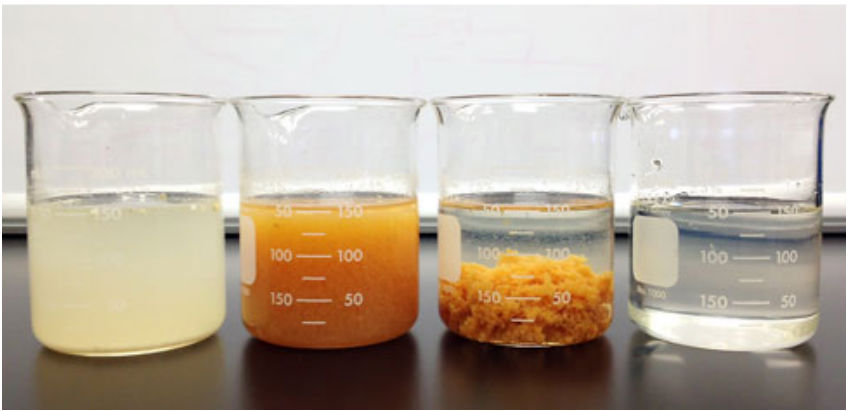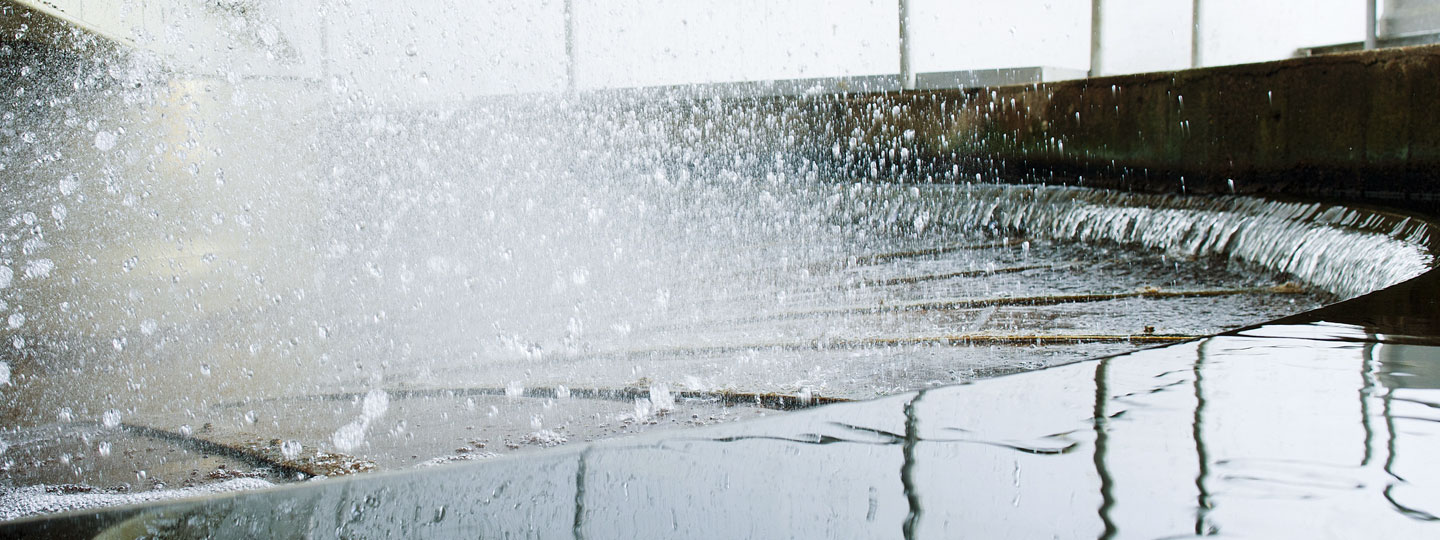When Choosing Water Therapy Chemicals for Optimum Performance, what to Look for.
When picking water treatment chemicals, it's essential to comprehend your details needs and the impurities present in your water supply. You'll want to assess the efficacy of prospective chemicals, guaranteeing they function well with your existing systems.
Recognizing Your Water Therapy Needs
When you're assessing your water therapy requires, it's essential to recognize the certain concerns influencing your water supply. Start by testing your water for pollutants like microorganisms, heavy metals, and chemicals.
Following, think of the source of your water-- whether it's from a well, a community supply, or a different source. Each has unique challenges that need tailored services. Consider your house's water use and any certain wellness issues your family members may have. By understanding these elements, you can assure that you choose the right chemicals and treatment techniques to successfully address your unique demands, causing safe and clean water for your home.

Assessing Chemical Efficacy
To ensure the chemicals you select are reliable, you need to examine their efficiency versus your specific water therapy objectives. Look for independent test outcomes or qualifications that demonstrate the chemical's efficiency in real-world applications.
Next, think about the chemical's rate of action and the time it requires to attain wanted results. water treatment chemicals kingwood texas. Testing the chemical in a regulated setting, ideally, can additionally assist you determine its efficiency
Do not neglect to assess any kind of prospective negative effects or environmental impacts that might develop from using the chemicals. By completely examining these aspects, you can make enlightened options that straighten with your water treatment objectives, ensuring optimal performance and security for your system.
Ensuring Compatibility With Existing Solution
When selecting water therapy chemicals, you need to evaluate just how well they'll work with your existing systems. It's vital to assess possible chemical communications to prevent any type of damaging results. By making certain compatibility, you can enhance system performance and keep water top quality successfully.
System Compatibility Evaluation
Protecting compatibility with existing systems is important for efficient water treatment, as poorly picked chemicals can result in tools damage and decreased efficiency - water treatment chemicals kingwood texas. Start by assessing your system's materials, such as storage tanks, pipes, and pumps, to recognize any kind of potential interactions with the chemicals you're considering. Look for any kind of manufacturer suggestions to make certain you're not going against guidelines or guarantees. Additionally, assess the pH levels and temperature level limits of your system, as these aspects can impact chemical performance. It's also handy to consult with your chemical provider for recommendations on compatibility. By taking these steps, you'll help ensure that the chemicals you select will certainly work sympathetically with your existing arrangement, maximizing performance and securing your financial investment.
Chemical Communication Evaluation
Because recognizing chemical interactions is crucial for maintaining system honesty, it's crucial to evaluate how the chemicals you prepare to utilize will connect with those already present in your water treatment system. Beginning by evaluating the chemical composition of your existing therapies. Always consult safety information sheets and involve with chemical vendors for understandings on compatibility.

Assessing Security and Handling Requirements
When picking water treatment chemicals, you need to prioritize safety and handling needs. Make sure you understand the regulatory compliance requirements, make use of the appropriate individual safety devices, and follow appropriate storage and disposal guidelines. This assures not only your safety but additionally the atmosphere's health.
Regulatory Compliance Criteria
Understanding regulative compliance standards is essential for anyone entailed in water therapy, as these standards dictate the security and handling needs for chemicals utilized in the process. Compliance guarantees that the chemicals you select not just meet safety demands yet also lessen environmental impact. By prioritizing compliance, you shield yourself, your group, and the environment while keeping the effectiveness of your water therapy operations.
Individual Safety Devices
Assuring safety in water therapy procedures exceeds just complying with regulative conformity; it also involves selecting the right personal protective equipment (PPE) You need to analyze the specific chemicals you'll be taking care of and choose PPE that protects versus their risks. This could include check this site out gloves, safety glasses, deal with shields, and respirators, relying on the substances entailed. Constantly check the Material Security Information Sheets (MSDS) for each chemical to recognize the essential PPE demands. When working with destructive or toxic chemicals, do not take faster ways-- buy top notch tools that fits well and fits to use. On a regular basis check your PPE for wear and tear, and change it as needed to ensure optimal defense during your water treatment operations.

Storage Space and Disposal Guidelines
Correct storage and disposal of water therapy chemicals is vital for maintaining safety and security and compliance. Constantly shop chemicals in their original containers, snugly secured, and in an awesome, completely dry place away from straight sunlight. Verify that you classify all containers clearly to avoid complication.
When handling chemicals, use suitable individual safety equipment, like safety glasses and handwear covers. Understand any type of specific storage space instructions or temperature level requirements.
Never ever put chemicals down the drainpipe or blend different compounds, as this can produce unsafe reactions. Rather, use marked disposal centers or waste collection solutions.
Assessing Regulative Compliance Specifications
While examining water therapy chemicals, you need to be conscious of the regulatory conformity standards that control their use. These requirements ensure that the chemicals you select satisfy safety, health and wellness, and environmental needs. Familiarize yourself with regional, state, and federal policies, such as the Environmental Protection Firm (EPA) standards in the United States.
You need to likewise examine for any kind of industry-specific requirements that may put on your operations, like those from the American Water Works Organization (AWWA) or the National Cleanliness Structure (NSF)
It's essential to validate that the chemicals you choose are accepted for the desired application, specifically if they'll affect drinking water top quality. Non-compliance can lead to major legal consequences and adversely effect public wellness.
Taking Into Consideration Cost-effectiveness and Budget Plan Restrictions
When you're picking water treatment chemicals, it's critical to weigh cost-effectiveness along with your budget constraints. Beginning by reviewing the general prices, consisting of not simply the acquisition rate however likewise delivery, handling, and disposal costs. Examine just how these chemicals will certainly influence your functional expenditures in time.
Think about the performance of each chemical; some may have a greater upfront price however supply much better efficiency and lowered long-lasting expenses. Seek products that call for reduced dosages or much less frequent application, as these can save you cash in the future.

Don't forget to consider possible savings from enhanced water quality and conformity with guidelines, which can avoid pricey penalties. Involve with your team to identify which choices straighten with your financial objectives while still satisfying your treatment requires. Striking the right balance can bring about efficient solutions without additional reading damaging the financial institution.
Analyzing Vendor Reputation and Assistance Services
Choosing the ideal supplier for your water treatment chemicals is necessary, as their online reputation and support services can significantly impact your procedures. Beginning by looking into prospective vendors-- search for evaluations and testimonials that highlight their dependability and quality. A strong track record usually shows a dedication to client satisfaction and product performance.
Next, analyze the assistance solutions they use. Do they offer technical assistance, training, and punctual responses to questions? A distributor that waits their items and wants to aid you troubleshoot issues can save you money and time in the lengthy run.
Finally, consider their experience in the industry. An established provider with a tried and tested track record is most likely to recognize your particular requirements and offer customized remedies. By carefully evaluating these aspects, you'll locate a partner that not just satisfies your chemical requires yet also sustains your overall operational objectives.
Frequently Asked Questions
How Do I Establish the Right Dose for Chemicals?
To establish the best dosage for chemicals, you must examine water high quality, follow producer standards, and perform routine testing. Readjust your dose based upon results, guaranteeing you maintain suitable treatment effectiveness and water safety and security.
Can Water Treatment Chemicals Impact My Water Preference or Smell?
Yes, water treatment chemicals can affect your water's taste and smell. If you notice any type of adjustments, it is vital to examine the chemicals used and adjust dosages or switch to options for better results.
What Are the Usual Signs of Chemical Conflict?
You'll notice indications of chemical conflict through unforeseen shade modifications, sediment development, or uncommon odors. It's essential to reassess your chemical choices to ensure effective and risk-free water treatment. if you see these problems.
Exactly how Commonly Should I Test Water After Chemical Therapy?
You need to test your water frequently after chemical therapy, ideally within 24-hour, after that once a week for the very first month. Afterwards, month-to-month testing aids ensure continuous safety and performance of your water therapy system.
What Environmental Effects Should I Think About With Chemical Usage?
When utilizing chemicals, consider their effects on local communities, water high quality, and air pollution. water treatment chemicals kingwood texas. You ought to additionally examine potential drainage and the lasting sustainability of your water treatment techniques to lessen environmental damage
Final thought
In summary, selecting the right water therapy chemicals is necessary for browse around this web-site peak efficiency. Take the time to pick sensibly for the best results in your water treatment efforts.
When picking water treatment chemicals, it's crucial to recognize your specific demands and the impurities present in your water supply.Because recognizing chemical communications is important for maintaining system stability, it's important to analyze just how the chemicals you prepare to make use of will connect with those currently present in your water therapy system.When choosing water treatment chemicals, you require to focus on safety and handling needs.Understanding regulatory conformity criteria is crucial for anyone included in water treatment, as these guidelines dictate the safety and handling demands for chemicals utilized in the procedure. Can Water Treatment Chemicals Impact My Water Preference or Smell?